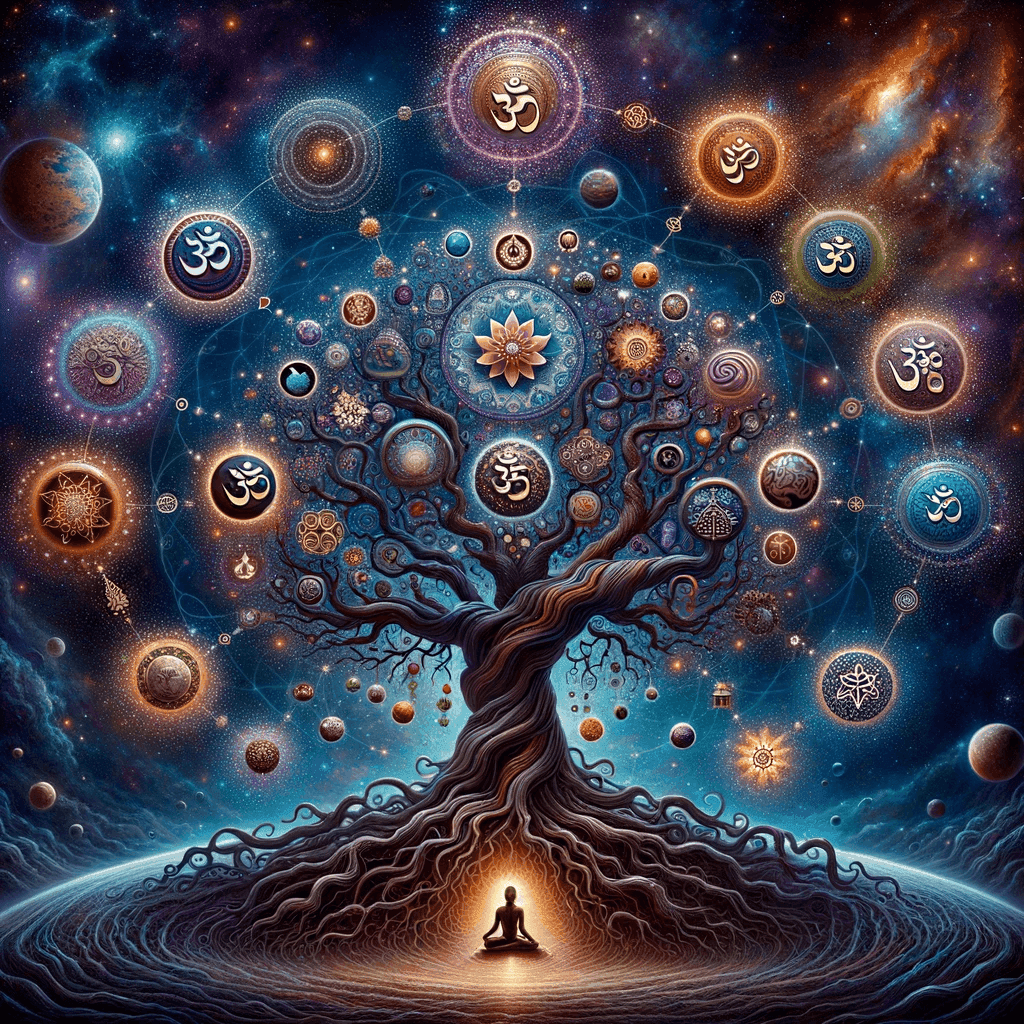The Multifaceted Nature of Sanatan Dharma - Beyond Escaping Samsara
Sanatan Dharma, often equated with Hinduism, is sometimes misconceived as being solely focused on escaping samsara, the cycle of birth, death, and rebirth. However, this view overlooks the rich and diverse aspects of Sanatan Dharma, which values not only liberation (moksha) but also righteous living, fulfilling one's duties (dharma), and contributing positively to society.
Myths/Truths and Other Details

Why There is a Myth?
The myth that Sanatan Dharma is only about escaping samsara may stem from its emphasis on moksha as one of the four primary goals of life. This focus on liberation is often highlighted in spiritual discussions, potentially overshadowing the tradition's other aspects.
What's the Truth?
Sanatan Dharma encompasses a holistic approach to life, balancing the pursuit of liberation with the importance of ethical living, social responsibilities, and personal growth. It recognizes the significance of life in the material world and encourages individuals to engage in it meaningfully and righteously.
The Four Purusharthas: A Balanced Life Approach
- Dharma (Righteousness): Dharma involves fulfilling one's ethical duties and responsibilities, and contributing to the order and harmony of society.
- Artha (Wealth and Prosperity): Pursuing wealth and prosperity is considered important, but it should be done in a manner that is in harmony with dharma.
- Kama (Desire and Pleasure): Enjoying life's pleasures is acknowledged as a natural human aspiration, provided it is in line with dharma and does not hinder spiritual growth.
- Moksha (Liberation): While liberation from the cycle of samsara is a significant goal, it is balanced with the responsibilities and joys of worldly life.
Samsara and Karma: The Cycle of Life
- Understanding Samsara: Samsara is seen as the cycle of birth, death, and rebirth, influenced by one's karma. It is a process of learning and evolution for the soul.
- Role of Karma: Actions in life (karma) determine the circumstances of future births. Ethical actions lead to positive outcomes, while negative actions can lead to adverse rebirths.
Modern Interpretations and Practices
- Contemporary Relevance: In modern times, the teachings of Sanatan Dharma are interpreted to address contemporary challenges, emphasizing the importance of living a balanced and ethical life.
- Global Influence: The principles of Sanatan Dharma have influenced global spiritual and ethical discourses, promoting values such as harmony, compassion, and social responsibility.
...




